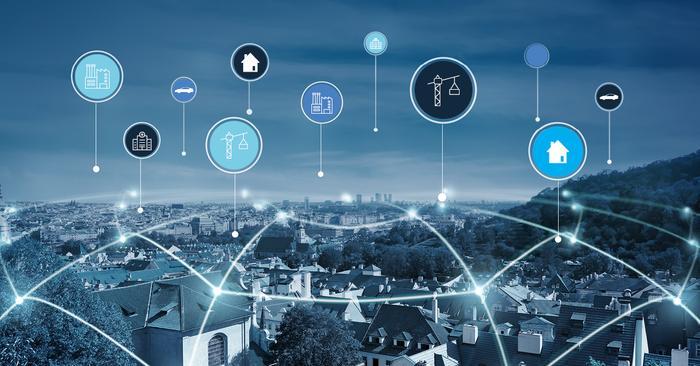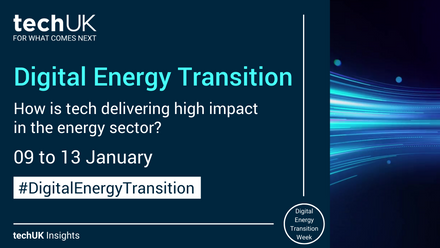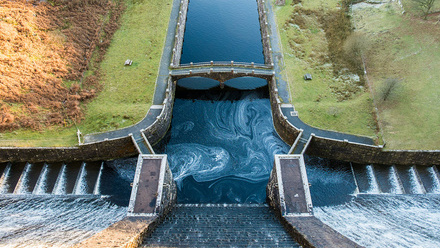Will Data Sharing Underpin The Future Of Sustainability?

As we take small steps towards a post-Covid era, there is a big emphasis on how businesses and local governments can make giant leaps towards sustainability and changing society for the better. Over the last 12 months we’ve seen how quickly companies adapted as the pandemic spurred trends, such as using Geospatial data to improve route optimization helping to reduce emissions and increase efficiency with home deliveries. There was also more cooperation between innovative companies, like DronePrep, and governments to deliver vital PPE equipment via drones to remote areas across the UK. We could definitely argue that the crisis has certainly highlighted the value of Geospatial solutions.
Prior to the pandemic corporate leaders, such as Microsoft, said their aim was to be carbon-negative by 2030, while Amazon has been investing heavily in electric vehicles and solar panels for warehouses as part of their green pledge to be carbon-neutral by 2040.
How can we ensure that sustainability, reducing emissions and eliminating waste remains at the forefront of government policy? We have a responsibility to the environment to take care of it. To quote philosopher Ralph Waldo Emerson; “We do not inherit the Earth from our ancestors - we borrow it from our children.”
To tackle this global issue of climate change and sustainability, we need to be open to innovation and collaboration. That’s why Geovation, an initiative of Ordnance Survey (OS), aims to drive innovation in the Geospatial industry and gain valuable insight into how Geospatial data can further contribute to the UK economy and digital transformation.
Since running our first innovation challenge in 2009, Geovation has collaborated with partners across the public and private sector to run accelerator programmes to help location data and proptech startups launch and grow. In total, Geovation has supported 125 startups and as a result created over 550 new jobs.
One of these start-ups is Planet Patrol, a company tackling plastic pollution at the source who have already grown globally. They run activity-based clean-ups across UK, Europe, USA and South America with 15,000 volunteers gathering and logging more than 300,000 examples of litter in the app.
A recent annual litter report by Planet Patrol highlighted the inadequacy of current recycling infrastructure and the requirement for a standardised recycling system across the UK. Clearing up litter already costs the taxpayer £660 million every year and, with the amount of plastic the UK throws away, is set to increase by over a million tonnes by 2030.
Another Geovation member, Kids Against Plastic, aim to increase awareness about the negative effect single-use plastic is having on the environment, through learning and action. Founded by kids for kids, they are leading the charge and their next step is to expand into school networks.
The grassroots movement to prevent plastic pollution is also supported by Refill, a Geovation Challenge winner, who connect people looking to reuse and refill their bottle with over 14,000 Refill stations across the UK via a location-based app. If all Refill stations were used just once a day, then that would stop around 4 million plastic bottles at source in a year.
There is real opportunity to harness the power of Geospatial data in order for businesses to become more efficient and improve sustainability. QualisFlow believes that automating the collection and analysis of construction project data in real-time is key to improving sustainability performance and reducing pollution in an efficient and cost-effective way.
Also supporting this idea of collaboration is BuildEco, a proptech company, specialising in modular manufacturing and construction (MMC) builds. Through their leadership in working with building providers and sharing data, they have reduced construction time, prevented waste with non-combustable, net zero flat-pack solutions and in turn increased efficiencies. This has had a positive impact on the construction industry’s carbon footprint and sets the standards for others to follow.
If Covid has taught us anything, let it be that innovation can inspire collaboration and through data sharing, we can contribute social and economic value to the global economy, and create a more efficient and sustainable environment for the future. In crisis lies opportunity: we can build back better, and Geospatial innovation will play a key part in making that happen.
For more information about Geovation go to Homepage - Geovation
You can read more insights from techUK's #GeospatialFuture campaign here!

Laura Foster
Laura is techUK’s Associate Director for Technology and Innovation.






